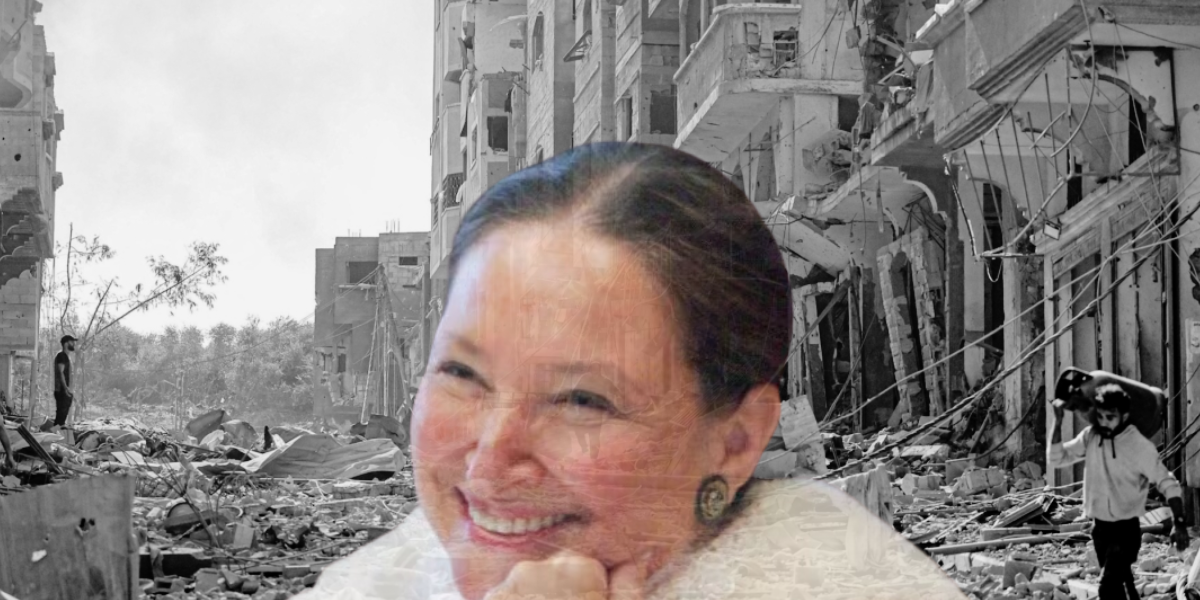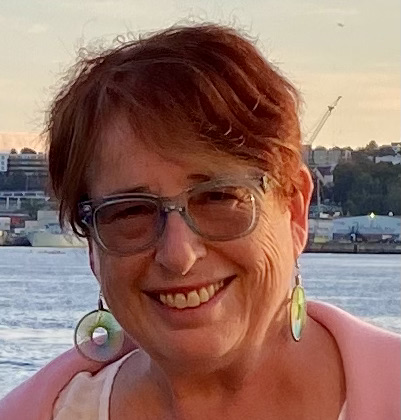Retired Justice Rosalie Abella’s recent op-ed in The Globe and Mail takes me back to an encounter I had with her a decade ago—and how disappointing she was.
I used to think highly of Justice Rosalie Abella, who in 2021 retired from the Supreme Court of Canada after 17 years on the bench. Forty years ago, in 1983-84, she was the sole commissioner of the Royal Commission on Equality in Employment which became known as the Abella Commission. In that role, she developed the first Canadian plan for Employment Equity which aimed to reduce barriers in employment for women, people of colour, people with disabilities, and Indigenous people. Abella was the chair of the Ontario Labour Relations Board from 1984-89 and she was a commissioner on the Ontario Human Rights Commission. More than 38 universities have awarded her honorary degrees.
But in her op-ed last week in the Globe and Mail, she refused to let facts get in the way of her support of Israel. According to her, Israel is the victim in its war on Hamas. This statement sums up her position:
“Hamas’s explicit and unapologetic goal is to eliminate Jews. The elimination of Jews is genocide. … It is a legal absurdity to suggest that a country that is defending itself from genocide is thereby guilty of genocide.”
Abella joins pro-war glee club
Where have we heard that Israel is merely defending itself? We’ve heard it from most mainstream western politicians, from US Pres. Joe Biden, to British PM Rishi Sunak to Prime Minister Macron, to our own PM, and leader of the Opposition.
We’ve heard it from the pro-war glee club – those Canadian journalists and hangers-on that always believe war and power are the way to solve international problems. They also believe that Israel remains a beacon for democracy so total support for Israel and its record of murdering and maiming tens of thousands of Palestinians over 75 years are acceptable. The journalists include–Paul Wells, Don Braid, Terry Glavin, Conrad Black, Rosie DiManno, Barbara Kay, Rex Murphy, Warren Kinsella, Martin Regg Cohn, Konrad Yakabuski, Matt Gurney, Jesse Kline and Tasha Kheiriddin. You’ll notice the club has few women. But it boasts support of the editorial boards of the National Post and The Globe and Mail.
Of course, in her Globe article Rosalie Abella had to lament the “deaths and suffering of innocent civilians” but she doesn’t even bother to put a number on them. Come to think of it, most of the journalists and politicians listed above don’t bother to put a number on the deaths of Gaza’s civilians. It’s as if their tongues would catch fire at the mere mention.
Today’s numbers reveal that more than 23,000 Palestinians in Gaza have been killed including at least 10,000 children in the last three months. According to Save the Children, more than 1,000 Palestinian children have had one or both of their legs blown off or amputated (many without anaesthetic or pain relief) since October 7. These numbers do not include the thousands of children and adults buried alive – dying or dead — in the rubble of tens of thousands of homes flattened by Israel’s bombings, shelling, and drone attacks.
According to Abella, Gaza is an “unbearable tragedy” but it is one she, and other supporters of Israel along with the establishment Jews in Canada, are more than willing to bear.
Even if Israel had the right to defend itself (which it does not according to Francesca Albanese, the UN’s Special Rapporteur on the Occupied Palestinian Territories) at what point does self-defense end and genocide begin? According to Israel’s defenders the answer is “never.” Here’s an example: your home gets invaded by a thug; you shoot him in the leg, then you torture, then starve him. Then you kill him. Will the fact that he invaded your home save you from judgement of the court? At some point, the argument of self-defense ends.
Where are the facts?
Where are the facts behind what Abella says? Where is the evidence of genocide against the Jews? Twenty-three thousand dead Palestinians suggests a genocide against the people of Gaza, not the Jews in Israel.
Abella cries that the world refuses to show “the same obsessive interest” in holding other countries to legal account for their actions. Well, it turns out that the International Court of Justice (ICJ) has done just that.
The ICJ, which heard South Africa’s case against Israel for genocide this month, has found fault with another country. In 2022 the ICJ ordered Russia out of Ukraine. Thirty-two countries supported Ukraine. Of course Abella, slyly, did not mention that decisions by the IJC are basically unenforceable. Decisions are forwarded to the UN Security Council which is supposed to “uphold” the judgements, but permanent members have veto power.
I have to say Abella’s impassioned defence of Israel, did not really surprise me as it once would have. It was about ten years ago now, that I had a private chat with Justice Abella which revealed a side of her I wish I had not seen.
My night With Justice Rosalie Abella
In 2004, Rosalie Abella was appointed a Supreme Court justice. About ten years later, Saint Mary’s University (where I was a faculty member) invited her to give a talk in Halifax. It was part of an annual lecture series meant to knit faiths together to discuss weighty matters. Abella’s talk on the topic of human rights was co-sponsored by the Atlantic Jewish Council.
As I walked into Saint Mary’s Theatre Auditorium, I saw a scattering of students in the huge hall, and members of the Religious Studies Department and administrators. About 50 attendees were prominent members of the Halifax Jewish community. A dozen professors and students came from Dalhousie’s law school.
As I sat through the gushing introduction, I realized it had elevated everyone’s expectations – but Justice Abella’s 40-minute speech sounded lacklustre and rote. She spoke of all the trouble spots in the world, the Congo, Somalia, Rwanda, China, the Russian orbit of countries, Latin America and explained the lack of democracy and the wars which had caused huge misfortunes for the local people, and the abrogation of their human rights on a grand scale. She must have named 20 countries, but never once mentioned Palestine.
It was a huge oversight, a glaring omission, a leap that showed not only that Palestinian human rights were not an issue, but that Israel’s illegal and brutal military occupation of nearly 60 years did not exist – for her.
When she ended her speech, there was a standing ovation; she looked pleased and curtsied to the audience. Members of the Jewish community climbed onstage to present her with a handmade Nova Scotia quilt, local pottery and even an artisan-woven shawl. She accepted accolades and the presents.
After the thanks and gift-giving, I realized I had to talk to her about her refusal to speak about Palestine and her support for Israel. I only had this once chance. The auditorium emptied quickly. Her driver said the snow that night was heavy so he was going to get the car and bring it around to the front doors.
Finally, she and I were alone in the room. I walked up smiling, and presented my business card. I said I had admired her work in labour law, especially her plan for employment equity which lay the ground for the federal Employment Equity Act. She was happy, and glad to get the praise. Then I said, “You know, people like you and me have to stand up against injustice committed by Israel—because if we as Jews don’t stand up, we can’t expect anyone else will. We have to speak against the Occupation.”
Her face clouded over; sharply and clearly she stated, “I will never do that.”
I said, “Surely if you are in favour of human rights you have to see what Israel is doing is wrong.”
She turned her back on me and muttered “I don’t agree and I will never say those things.” Then she picked up the shawl, the quilt and the pottery and dashed for the front doors. Left alone, I pulled on my coat to trudge home in the snow.
In the deep night of the soul…
Once home, my younger son asked me how it went. Terribly, I said. She just blew me off.
He said, “You know mum; she’s now in her hotel room and sometime tonight she’ll look out her window and will be thinking ‘I was in small-town Halifax and a Jewish woman prof asked me to support human rights for Palestinians.’ This will dog her – she won’t forget.”
All these years later, I remember the furious look she gave me – I was a traitor. I could not believe that someone who was a Supreme Court judge, someone who was a feminist, someone who challenged existing labour law, could be so wilfully blind.
That was about ten years ago. I doubt she’s visited Halifax since. Maybe I can take small pleasure in the fact she didn’t return because she didn’t want to run into me again.
This article first appeared on Judy Haiven’s blog.
Did you like this article? Help us produce more like it by donating $1, $2, or $5. Donate


